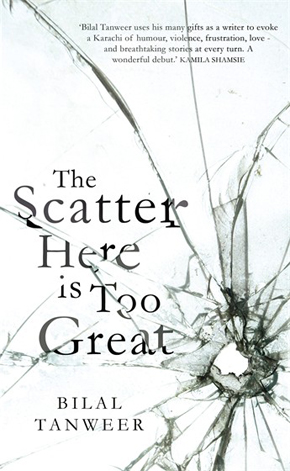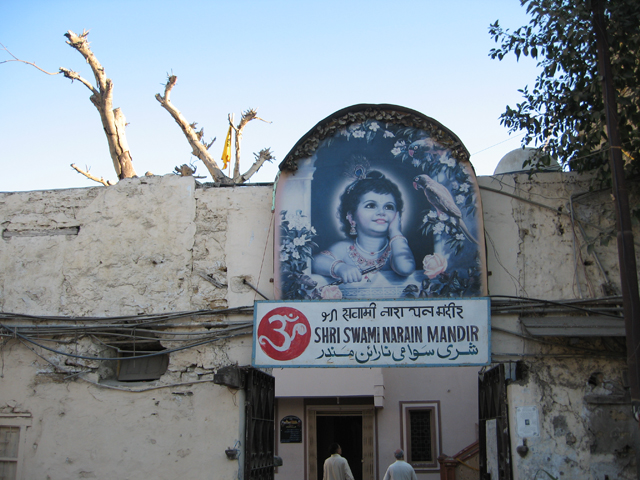This scatter must be gathered
by Bilal TanweerOn the night of 8 June 2014, a pack of ten terrorists raided Karachi airport. They were well trained and equipped with an arsenal of grenades, suicide vests, a rocket launcher and automatic weapons. They broke through the airport security guised as security personnel.
As the attack unfolded, I sat in disbelief in front of my television screen. The images were similar on all TV channels, which had planted their cameras at different angles to get unique shots of the rising smoke. Intermittently, I checked my Twitter feed for latest news and rumours from reporters present at the site. The stranded passengers were broadcasting their plight via social media. Occasionally, the television microphone picked up the cracking of bullets and the reporter shrieked, “Audience! You heard the firing behind me! There is an intense exchange of fire going on between the security forces and the terrorists!” When there was an explosion, the camera jerked upward and sideways and the reporter howled louder.
The shock that swept me during those moments was not so much about the spectacle that I was witnessing; rather, that such a thing was happening in the first place. It was incredible, inexplicable, unfathomable. Sure, things were bad, but nobody saw this coming.
But to be honest, it wasn’t the first time. One only forgot. Actually, it wasn’t even the second, third or even the fourth instance. Such surreal scenes were now the new normal in Pakistan. My mind flashed back to the bombing last year that targeted the Hazara Shias, a religious minority, which left over a hundred people dead. For four days that followed, the community simply refused to bury the dead in protest. Thousands of people sat with the bodies wrapped in white burial cloth placed in front of them demanding action from the government against the perpetrators of the attack.
Yes, one forgot that living in uncertain times, ‘normal life’ comes at a premium. To enable normality, i.e. sheltering oneself from uncertainties, especially in cities like Karachi, one fences oneself inside tiny islands which are all guarded by armed personnel: houses, cafes, banks, offices, restaurants, shopping malls; and one lives by hopping from one island to another. After a while, one adapts and gets comfortable and loses sight of the fact that these ad hoc arrangements were meant to be provisional; that they were meant to guarantee certainties only temporarily. And then all of a sudden, events like the Karachi airport attack crash in through our rickety makeshift fences with a reminder that even the most secure of our islands are not very safe after all.
Novels are usually created from reflective spaces where one is afforded a degree of emotional and temporal distance from events. More importantly, since long narratives like novels involve extended periods of gestation and execution, they require some stability regarding the contours of the possible in a particular context. The big problem of thinking about Pakistan in a medium like the novel is that it is increasingly difficult to find that stable vantage ground. The boundaries of the real and the possible keep shifting. The impossible happens every few days. The moment you think you have a scoop of the world in your grasp, it softens and melts and escapes through your fingers. What was unthinkable a few years back is now a part of daily reality. There is no time or space to pause and reevaluate your ideas. And this process never seems to end.
Such a situation exerts unique pressures on the writer – and by extension, on the form of the novel itself, which despite years of experimentation, is still largely dominated by the conservative realist mode of narration (and reading) that evolved in contexts where the readers and writers both shared stable conceptions about what is real and conceivable. It also poses significant philosophical problems to a writer writing about what it is to be alive in a setting where the uncertainty is so great that nobody is thinking ahead in years and decades but in days, weeks and months.
Marquez said it better in his Nobel Prize acceptance speech. “We [writers in Latin America] have had to ask but little of imagination, for our crucial problem has been a lack of conventional means to render our lives believable.”
It’s a pithy summary of the novelist’s task in places where the problem is not to come up with something spectacular, rather to find a language to render credible what is already too fantastically real.
Here’s another story:
On 27 May 27 2014, a woman called Farzana Parveen was bludgeoned to death with bricks in broad daylight by her family members. This incident took place outside the Lahore High Court. Her alleged crime was that she married a man of her choice. It was a blatant act of ‘honour killing’ that sparked outrage across the country. But as the investigations proceeded it was revealed that Farzana’s husband, Muhammad Iqbal, the man who Farzana married for love, already had a wife before Farzana. His previous marriage ended not in divorce but because he strangled his wife to death when she objected against his visits to his then-lover Farzana. He was charged for the murder of his wife but eventually let off after he paid blood money to the relatives of his deceased wife. Meanwhile, he had already married Farzana. But that’s not all. Farzana’s own family alleged later that she too was married before she eloped with Iqbal. They have a videotape of her previous marriage ceremony. They also claim that it was Iqbal and his 22-year-old son and not them who killed Farzana outside the Lahore High Court.
One of the major burdens on a novelist writing about a place is the task of investigating how universal events are invested with particular meanings. In practical terms, it means grappling with a cacophony of perspectives, languages, and consequently voices.”
Regardless of how the case proceeds and who eventually gets implicated for murder and who is punished for lying, as a novelist what is fascinating to me is the irreconcilable divergence in these accounts. Such positively contradictory views on a single event indicate an underlying infrastructure – material and abstract – to support these claims: real and fake eye-witnesses, real and fabricated documents and their manufacturers, and most importantly, an economy of ideas where such seemingly perplexing and incomprehensible acts are rendered credible and meaningful.
So one of the major burdens on a novelist writing about a place is the task of investigating how general/universal events – e.g. killing somebody – are invested with particular meanings. In practical terms, it means grappling with the cacophony of perspectives, languages, and consequently voices, that articulate disparate meanings. A writer must give those voices the full force of humanity because a voice embodies everything: the individual telling the story, the community listening to that story and the physical geography where all of this is taking place.
I consider my novel, The Scatter Here Is Too Great, an outcome of my engagement with the city of Karachi – one of the largest cities in the world, and also one of the least storied, even in local languages. The novel attempts to illuminate Karachi through nine voices that reflect on their experiences of a bomb blast. The narrators range from an obnoxious cartoonist on a bus, a horny young couple going on a date, an ambulance driver’s brother, a successful businessman encountering an old teacher, a young man who hijacks cars, a kid whose sister’s bedtime stories had taken bizarre twists, and a writer who is collecting these stories and investigating his own past as a writer in Karachi. The bomb blast at the heart of the novel represents the kind of blind violence that shatters and fundamentally alters the established idea of reality and how these voices come to terms with it, or fail to do so.
But it’s also true that human voices are terribly limited. They are no more than what wood shavings might be to a forest. As storytellers and readers of stories, the urge is always to reach for a Total Story – a story that would actually help us to see, know and experience reality, or to at least have a convincing illusion of it. By dramatising the act of writing, the act of constructing a story, my novel attempts to bring together voices that will never converge. It is a gesture at the Total Story while at the same time admitting the impossibility of such an endeavour.
The scatter here is too great indeed. But what can we do? We understand the world and ourselves only through narratives – a faulty and limited instrument by all accounts. But we need them to understand ourselves and the world. There is nothing else to do. This scatter must be gathered.
 Bilal Tanweer is a writer and translator born and raised in Karachi. His fiction, poetry and translations have appeared in international journals including Granta, Vallum, The Caravan and Words Without Borders. His debut novel The Scatter Here Is Too Great is published in hardback and eBook by Jonathan Cape. Read more.
Bilal Tanweer is a writer and translator born and raised in Karachi. His fiction, poetry and translations have appeared in international journals including Granta, Vallum, The Caravan and Words Without Borders. His debut novel The Scatter Here Is Too Great is published in hardback and eBook by Jonathan Cape. Read more.



